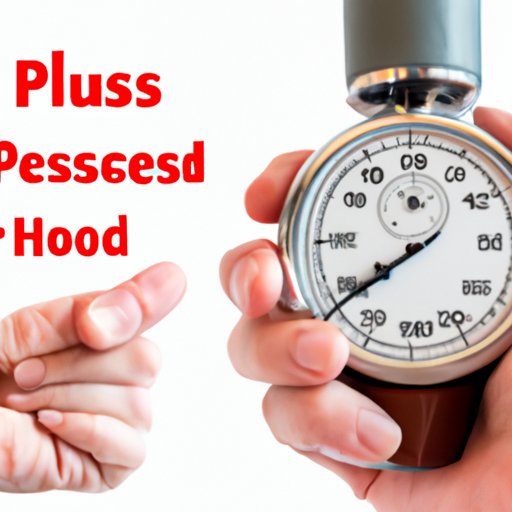
Introduction
High blood pressure, also known as hypertension, is a common condition that affects millions of people worldwide. It occurs when the blood flowing through your arteries exerts too much force against the walls of your blood vessels, leading to multiple health complications. In this article, we will explore the risk factors, symptoms, and management of high blood pressure, and why it’s essential to understand and manage the condition to maintain your overall health and well-being.
Understanding High Blood Pressure
High blood pressure can be caused by different factors, including age, family history, and lifestyle choices. As we age, the risk of developing high blood pressure increases, and the condition tends to run in families. Lifestyle choices such as poor diet, lack of exercise, and smoking can also increase your likelihood of developing high blood pressure.
High blood pressure affects the body by putting extra strain on the heart and blood vessels. Over time, this can lead to issues such as heart disease, stroke, and kidney failure. If left untreated, high blood pressure can cause severe health problems and reduce your overall quality of life.
Recognizing the Symptoms of High Blood Pressure
It’s essential to keep track of your blood pressure readings, as high blood pressure can often be asymptomatic or mimic other conditions. In some cases, you may experience symptoms such as headaches, fatigue, or chest pain, but these are not always reliable indicators of high blood pressure. The best way to know if you have high blood pressure is to regularly monitor your blood pressure levels with a device such as a blood pressure cuff. This can be done at home or at a healthcare provider’s office.
Managing High Blood Pressure through Lifestyle Changes
Lifestyle changes can play a significant role in managing high blood pressure. Incorporating physical activity such as walking, swimming or biking into your routine, eating a low-sodium, high-fiber diet, and practicing stress management techniques such as meditation or yoga can all help reduce high blood pressure. Quitting smoking, limiting alcohol intake, and maintaining a healthy weight can also help manage high blood pressure.
Treatment Options for High Blood Pressure
Various medications are available to treat high blood pressure. Your healthcare provider will decide which option is right for you based on your individual needs and goals. The most commonly prescribed medications include diuretics, beta-blockers, and ACE inhibitors, among others. Like all medications, these have potential side effects, so it’s important to work closely with your healthcare provider to manage your high blood pressure effectively. Medications may also need to be adjusted over time as your body changes or in response to any adverse effects.
The Importance of Regular Monitoring and Healthcare Provider Visits
To manage high blood pressure effectively, you should regularly monitor blood pressure levels. Home blood pressure monitors are a convenient and effective way to do this. Additionally, routine healthcare provider visits are critical to managing your high blood pressure and overall health. During these visits, your healthcare provider can check your blood pressure, assess any symptoms or side effects, and adjust your treatment plan as needed.
Possible Complications and Risks of Untreated High Blood Pressure
Untreated high blood pressure can lead to severe health outcomes such as heart disease, stroke, kidney failure, vision loss, sexual dysfunction, and cognitive impairment. Managing high blood pressure through lifestyle changes and medications can significantly reduce the risk of these complications and improve your overall quality of life.
Conclusion
High blood pressure is a common and potentially serious condition that requires understanding and management. Regular monitoring of blood pressure levels, lifestyle changes, and healthcare provider visits are crucial to managing high blood pressure effectively and reducing the risk of severe health complications. By taking control of your health and working closely with your healthcare provider, you can manage high blood pressure and maintain your overall well-being.





